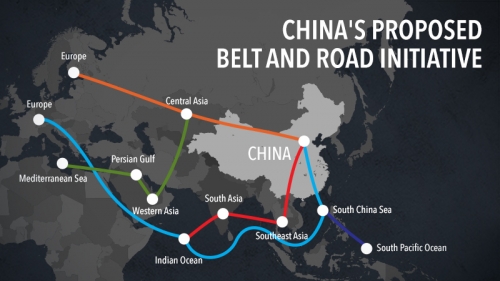Sur le quatrième monde, ou le retour de la politique
Par Hervé Juvin
Deuxième colloque de Chișinău (15-16 décembre 2017)
Ex: http://lesakerfrancophone.fr
Quel est le monde dans lequel nous entrons ? Quel est le monde dans lequel nous nous engageons à vivre ?
Les organisateurs de ce colloque ont eu raison lorsqu’ils ont choisi ce sujet : la quatrième économie. Mais je ne suis pas sûr qu’ils aient raison s’ils veulent que nous limitions notre champ d’application aux seuls problèmes économiques actuels.
 Ma réponse sera : le monde conduit par l’économie est le vieux monde. Nous ne regardons pas seulement l’échec misérable des institutions de Bretton Woods et de l’ordre libéral de l’Occident. Non seulement nous assistons à l’effondrement de la finance globalisée et des marchés interconnectés, mais aussi à celui d’un système dirigé par les Américains. Nous sommes les témoins de la fin de l’économie telle que nous la connaissions. Vous dites : économie ? Dites politique, idiot !
Ma réponse sera : le monde conduit par l’économie est le vieux monde. Nous ne regardons pas seulement l’échec misérable des institutions de Bretton Woods et de l’ordre libéral de l’Occident. Non seulement nous assistons à l’effondrement de la finance globalisée et des marchés interconnectés, mais aussi à celui d’un système dirigé par les Américains. Nous sommes les témoins de la fin de l’économie telle que nous la connaissions. Vous dites : économie ? Dites politique, idiot !
Pour le dire franchement ; la quatrième économie ne concerne pas l’économie, elle concerne surtout la politique, « nous, les gens » contre « l’ego, moi, moi-même » et il s’agit aussi de spiritualité. La lettre encyclique du Pape François, « Laudato si » est peut-être le texte politique le plus important de la décennie. Il s’agit principalement de ce que nous appelons « l’écologie humaine ». Et il s’agit aussi d’économie. Parce qu’il s’agit de survie.
Nous avons quitté l’économie agraire quelque part au siècle dernier, à un moment où l’ère industrielle était à son apogée. Ensuite, nous sommes doucement passés à une économie financière et de l’information dans laquelle nous sommes plus ou moins intégrés. Permettez-moi de prendre un exemple. J’ai commencé mon activité professionnelle à une époque où les compagnies aériennes comparaient le nombre de vols qu’elles effectuaient et le nombre de clients qu’elle servaient par an ; où deux constructeurs automobiles comparaient la taille de leurs usines, le nombre de leurs employés et les voitures qu’ils produisaient. De nos jours, ils ne font que comparer leur Ebitda et le ROE ; leurs travaux ne concernent plus les clients ou les produits, mais seulement l’argent. Gagner de l’argent, à tout prix. Est-ce qu’ils savent même ce qu’ils produisent ?
Quelle est la prochaine grande chose ? Ne rêvez pas des biotechnologies, des nanotechnologies, de l’intelligence artificielle, etc. Tout cela est bon pour les gars de Davos et pour ceux qui ont développé une telle foi qu’ils croient que la technologie peut résoudre tous les problèmes que la technologie a créés et crée encore à grande échelle. Et il y en a beaucoup à venir ! Attendez-vous simplement à un cauchemar avec l’impact des inégalités croissantes ; non seulement la pauvreté, mais l’expulsion de la nature d’un nombre croissant de personnes, passant la plus grande partie de leur temps devant un écran, obsédés par Internet, et n’ayant aucun accès à la nature à aucun prix – dunes de sable, forêts, rivières, et le chant des oiseaux, tout cela devenant le privilège des très riches, les seuls à garder un accès direct et illimité à la nature.
Quelle est la prochaine grande chose ?
Notre condition actuelle est façonnée par deux tendances puissantes ; une extinction massive de la diversité, à la fois naturelle et culturelle ; et le surgissement de l’économie comme vraie nature des êtres humains – le totalitarisme de l’ego.
Nous sommes proches d’une compréhension très précise que les deux constituent la plus grande menace contre la survie humaine, et que les deux appellent donc à une course à la vie. Le fait est que cette menace vient directement de ce qu’on nous dit de célébrer le plus : développement ; croissance ; technologie ; libre échange… Nous chérissons profondément la cause même de notre disparition, nous aimons ce qui nous amène au bord de l’extinction…
 Laissez-moi dire quelques mots sur chaque question.
Laissez-moi dire quelques mots sur chaque question.
Vous lisez beaucoup de choses sur l’extinction massive des insectes, des grands mammifères, etc. En fait, il y a plus d’une centaine d’espèces différentes de poulets dans la nature ; 97% des fermes industrialisées n’élèvent que trois espèces de poulets. Selon la FAO, plus de dix mille espèces de légumes étaient consommées il y a un siècle. L’agro-industrie a réduit cette diversité à moins de 60% pour 90% de ses produits commerciaux. Et la superficie occupée par l’agro-industrie est trois fois plus élevée qu’il y a vingt ans, mais un tiers du sol fertile est surexploité et proche de la désertification, selon un rapport de la FAO récemment publié à Ordos, en Chine. Mais c’est encore plus inquiétant côté humain. Il y a quarante ans, plus de 8000 langues différentes avaient encore une communauté de locuteurs dans le monde. De nos jours, 7000 n’ont pas plus d’un ou deux locuteurs, et elles vont bientôt disparaître avec eux. Le nombre de langues humaines a été divisé par près de dix fois en un demi-siècle, et chaque langue perdue est une bibliothèque qui brûle ! Du logement à l’agro-industrie, des modèles sociaux aux cultures autochtones, de la gastronomie locale aux aliments transformés, le trésor vivant de la diversité humaine est sur le point de s’effondrer ; nous devons savoir que la diversité entre les espèces ainsi qu’entre les communautés humaines est le facteur clé de la survie. Et cet atout crucial est en jeu.
La puissante tendance derrière l’effondrement de la diversité naturelle et humaine est le surgissement de l’économie en tant que véritable nature humaine et en tant que foi religieuse. Ce que nous appelons économie est l’association explosive entre une économie extractive et une économie de la cupidité au nom des droits individuels de l’homme. Cela repose presque entièrement sur deux hypothèses.
Premièrement, les ressources naturelles sont en quantité illimitée. Et elles sont gratuites. Le prix des ressources naturelles n’est que le prix de leur extraction, de leur transport et de leur emballage. Le marketing compte aussi. Juste pour mettre dans les rêves de milliards de personnes des marques et des produits dont ils n’ont jamais rêvé et dont ils n’ont absolument pas besoin. Ces hypothèses visaient à donner à l’homme la puissance de Dieu ; un pouvoir illimité, inégalé et sans égal sur n’importe quelle créature, et aussi sur la planète. Pour cet être humain libéré de ses chaînes, il n’y a plus de contraintes, ni de nature, ni de Dieu ; il est son propre créateur, et quand et où il y a des limites, il y a juste des problèmes à résoudre. Pour l’individu souverain, comme nouvelle religion des droits de l’homme, la foi religieuse elle-même n’est qu’un problème à résoudre. Mais cette supposition est fausse, et nous le savons. Nous payons déjà pour des ressources que personne n’a jamais rêvé de payer ; quel est le marché de l’émission de carbone, si ce n’est le marché de l’air pur ? Nous craignons déjà des maladies dans l’eau, dans la terre, et dans trop de formes de vie. Et le roi de la peur joue en coulisse, la peur du changement climatique, la peur des maladies, la peur d’une espérance de vie plus courte et, de plus, la peur de la vie elle-même − la peur du monde extérieur. L’Ouest ne le comprend pas et considère qu’il s’agit juste d’un autre problème à résoudre. Si vous ne voulez pas être un américain comme tout le monde veut l’être, vous avez un problème. Un gros problème, oui.
 La deuxième hypothèse est que toute société humaine dans le monde entier est à la recherche de développement. C’est aussi un mensonge. En fait, la plupart des communautés indigènes et des confessions religieuses sont organisées contre le développement ; elles n’ont pas de place pour une telle chose dans leur communauté. Près de chez moi, sur la côte ouest de Madagascar, ils brûlent la maison de quiconque devient riche, pour le garder dans la communauté. Ils comprennent très bien que l’argent est le grand fossé entre les êtres humains, et l’économie de marché, la fin des communs. Le fait n’est pas qu’ils sont incapables de se développer eux-mêmes ; la vérité est que, en tant que communauté, ils refusent l’individualisme lié au développement économique. Ils préfèrent leur communauté au droit illimité de rompre avec elle et avec la nature elle-même. La phrase qu’ils préfèrent est « Mieux vaux une touche de fihavanana (le bien-être collectif) qu’une tonne d’or ». Pour le bien de la croissance, ce que nous appelons le développement, c’est la rupture de ces communautés contre leur volonté et la fin de leur bien-être collectif pour les fausses promesses d’un accomplissement individuel. Sous le faux drapeau de la liberté, pour le commerce et l’argent, les Occidentaux l’ont fait à plusieurs reprises, de la rupture du Japon par le commodore Perry, aux misérables guerres de l’Opium contre la Chine, à la guerre criminelle contre les gouvernements nationalistes des Philippines ou d’Amérique du Sud. Les opérations criminelles de la Fondation Gates introduisant des OGM dans les pays pauvres d’Afrique, réduisant le paysan en esclavage. Il y a aussi le grand projet d’électrification de l’Afrique ouvrant la porte à la nouvelle colonisation des terres, des cultures, des forêts et des richesses de sa biodiversité, par les grandes entreprises. Et ce qui importe le plus, c’est la destruction des symboles de leurs traditions [« Rest » en anglais, NdT], de leurs choses sacrées et, finalement, de leur foi – l’usine du dénuement moral ; les rendant honteux de qui ils sont. De l’Afrique à l’Amérique du Sud ou de l’Asie du Sud-Est à la Russie, les populations autochtones savent très bien que tout n’est pas à vendre ; vous ne pouvez pas échanger quelques acres de forêt tropicale contre quelques acres de toundra. Vous ne pouvez pas échanger le dernier rhinocéros blanc contre des actions dans des parcs animaliers. Et ils craignent que l’avidité illimitée provoque des guerres pour les ressources ; qu’est-ce que l’invasion de l’Irak, sinon une guerre pour le pétrole, la guerre civile en Syrie, sinon une guerre pour l’eau, qu’est-ce que le meurtre de Saddam Hussein, de Mouammar Kadhafi, le bombardement d’une usine de produits pharmaceutiques au Soudan ? Et tant de nombreuses attaques terroristes similaires, à l’exception d’une tentative désespérée de contrôler les ressources naturelles, la vie elle-même, et de maintenir la capacité des États-Unis à ne jamais faire face à leur dette insoutenable ?
La deuxième hypothèse est que toute société humaine dans le monde entier est à la recherche de développement. C’est aussi un mensonge. En fait, la plupart des communautés indigènes et des confessions religieuses sont organisées contre le développement ; elles n’ont pas de place pour une telle chose dans leur communauté. Près de chez moi, sur la côte ouest de Madagascar, ils brûlent la maison de quiconque devient riche, pour le garder dans la communauté. Ils comprennent très bien que l’argent est le grand fossé entre les êtres humains, et l’économie de marché, la fin des communs. Le fait n’est pas qu’ils sont incapables de se développer eux-mêmes ; la vérité est que, en tant que communauté, ils refusent l’individualisme lié au développement économique. Ils préfèrent leur communauté au droit illimité de rompre avec elle et avec la nature elle-même. La phrase qu’ils préfèrent est « Mieux vaux une touche de fihavanana (le bien-être collectif) qu’une tonne d’or ». Pour le bien de la croissance, ce que nous appelons le développement, c’est la rupture de ces communautés contre leur volonté et la fin de leur bien-être collectif pour les fausses promesses d’un accomplissement individuel. Sous le faux drapeau de la liberté, pour le commerce et l’argent, les Occidentaux l’ont fait à plusieurs reprises, de la rupture du Japon par le commodore Perry, aux misérables guerres de l’Opium contre la Chine, à la guerre criminelle contre les gouvernements nationalistes des Philippines ou d’Amérique du Sud. Les opérations criminelles de la Fondation Gates introduisant des OGM dans les pays pauvres d’Afrique, réduisant le paysan en esclavage. Il y a aussi le grand projet d’électrification de l’Afrique ouvrant la porte à la nouvelle colonisation des terres, des cultures, des forêts et des richesses de sa biodiversité, par les grandes entreprises. Et ce qui importe le plus, c’est la destruction des symboles de leurs traditions [« Rest » en anglais, NdT], de leurs choses sacrées et, finalement, de leur foi – l’usine du dénuement moral ; les rendant honteux de qui ils sont. De l’Afrique à l’Amérique du Sud ou de l’Asie du Sud-Est à la Russie, les populations autochtones savent très bien que tout n’est pas à vendre ; vous ne pouvez pas échanger quelques acres de forêt tropicale contre quelques acres de toundra. Vous ne pouvez pas échanger le dernier rhinocéros blanc contre des actions dans des parcs animaliers. Et ils craignent que l’avidité illimitée provoque des guerres pour les ressources ; qu’est-ce que l’invasion de l’Irak, sinon une guerre pour le pétrole, la guerre civile en Syrie, sinon une guerre pour l’eau, qu’est-ce que le meurtre de Saddam Hussein, de Mouammar Kadhafi, le bombardement d’une usine de produits pharmaceutiques au Soudan ? Et tant de nombreuses attaques terroristes similaires, à l’exception d’une tentative désespérée de contrôler les ressources naturelles, la vie elle-même, et de maintenir la capacité des États-Unis à ne jamais faire face à leur dette insoutenable ?
Nous avons beaucoup à apprendre des communautés autochtones. Nous, les peuples des Nations européennes, sommes aussi des peuples autochtones, sur nos terres, dans nos pays, avec nos traditions, notre foi, nos biens communs pour lesquels nous avons combattu tant de fois, et nous sommes toujours capables de nous battre. Mais nous n’avons plus beaucoup de temps pour le faire.
L’effondrement politique de l’individualisme
La situation actuelle a de grandes conséquences sur l’économie elle-même mais elle concerne principalement ce que nous appelons la politique. Nous devons réinventer la signification même de celle-ci ; la liberté collective des sociétés humaines de façonner leur destin. Et nous devons réinventer la façon dont la politique régit l’économie ; la façon dont l’économie est un outil de nos sociétés, pas l’inverse. Karl Polanyi a écrit des choses définitives à ce sujet.
Le système post-démocratique de la grande entreprise en charge de nos rêves, de nos emplois et de nos vies repose principalement sur la libre poursuite de la cupidité illimitée par l’ego – l’individu souverain. L’idée de base est que l’homme n’est que la liberté illimitée qu’il se crée, et qu’il a droit à une utilisation illimitée du monde. Ne faites pas d’erreur ! Ce système n’est pas faible, malgré toutes les apparences. Ce système est très puissant, mais sous deux conditions : dans la mesure où la grande majorité des citoyens pensent être de véritables initiés, qu’ils sont des gagnants du système, et aussi, dans la mesure où les ressources naturelles lui permettent de promettre une croissance illimitée. C’est le gouvernement de l’homo œconomicus par ses désirs illimités ; le gouvernement pour le big business sous le visage souriant de la démocratie.
Ce système a colonisé nos esprits, nos rêves, nos imaginaires ; sa principale réalisation est de nous avoir coupé du monde extérieur. Nous sommes en fait aveugles à l’altérité, l’Occident ignore la tradition [« Rest »en anglais, NdT]. Et connaissez-vous le premier symptôme d’une dépendance à Internet ? L’incapacité de reconnaître les visages humains entre amis et membres de la famille !
 En disant cela, nous sommes proches du grand secret caché derrière la scène ; nous sommes confrontés à la fin des systèmes libéraux tels que nous les connaissions.
En disant cela, nous sommes proches du grand secret caché derrière la scène ; nous sommes confrontés à la fin des systèmes libéraux tels que nous les connaissions.
Ces systèmes libéraux ne s’appuient pas tellement sur la foi collective dans la Constitution, la Nation ou même le parti au pouvoir. Ils ne comptent que sur la cupidité libre et illimitée accordée à chaque individu. Non seulement c’est autorisé mais c’est même prescrit. Tous les systèmes religieux, sociaux et politiques avant nous, ont fait très attention à limiter, à refréner le désir du plaisir, de la richesse, des biens, ou à leur substituer des biens spirituels ; nous vivons dans le premier système politique et social basé sur la libération absolue et complète de la cupidité. Jetez un œil à nos écoles commerciales et sur les MBA ; nous en avons fait un modèle d’école de cynisme et de cécité morale ! Et ne vous trompez pas, ce système est incroyablement puissant ! Le système de la cupidité individuelle a gagné contre le totalitarisme. Il a gagné contre les grandes religions, les traditions et même les nationalismes. Le lien invisible créé entre les individus sur rien de plus que la promesse d’une quête illimitée d’argent, de biens et de plaisir est bien plus fort que les liens extérieurs, les autorités supérieures, Dieu, l’Empereur, le Roi ou la révolution politique ; ceux là venaient d’en haut. La révolution individuelle vient de l’intérieur. La cupidité de l’intérieur, c’est le puissant moteur du libéralisme individuel ! En fait, la révolution de l’individu est le principal moteur politique du siècle dernier. Et est le gagnant contre le fascisme, le nazisme, et finalement l’Union soviétique elle-même.
Le secret à partager entre nous est que le jeu est terminé. Les seules et uniques conditions de la viabilité du système de la cupidité étaient l’offre illimitée de ressources naturelles et le renouvellement des systèmes vivants d’un côté ; et le partage des avantages entre tous les citoyens de l’autre côté. L’économie du carbone a en fait façonné la démocratie. L’offre illimitée de ressources naturelles a façonné les droits de l’homme en tant que droits de l’individu souverain. Les droits illimités appellent un approvisionnement illimité. Nous savons que ce système est près de s’effondrer. L’effondrement viendra non seulement de l’extension de la pauvreté, mais du fait que la grande majorité des citoyens occidentaux seront de plus en plus exclus de toute forme de bénéfices venant du système. Depuis la fin de la grande peur du communisme et la fin de l’Union soviétique, voici la fin du capitalisme de partage. Le capitalisme ne repose plus sur de bons salaires qui augmentent régulièrement ; il s’appuie de plus en plus sur les prisons et la police. Et l’effondrement viendra non seulement du changement climatique, mais aussi des terribles conséquences des produits chimiques, des pesticides et de la pharmacie dans les sols, la viande et, finalement, la richesse humaine. Il viendra non seulement de l’empoisonnement de l’eau douce, de la nourriture transformée et de l’atmosphère urbaine, mais aussi des événements extrêmes menaçant toutes ces villes au bord de la mer, et aussi des quantités de réfugiés jamais vues auparavant − par dizaines de millions venant d’Asie et d’Afrique.
Le facteur de la peur suit de près la tromperie. Et les deux sont politiquement des armes de destruction massive pour l’Occident.
Cela définit le moment politique que nous vivons maintenant dans les pays occidentaux. Le passage d’individus unifiés par leur désir de richesse à des communautés unies par la lutte pour la survie est un moment à la fois de grandes attentes et de grands risques. C’est la dimension cachée derrière le Brexit, derrière la victoire de Donald Trump, pas si surprenante après tout, et derrière tant de booms politiques et d’explosions à venir ! Et ce pourrait être le meilleur des temps, ainsi que le pire des moments. Qui sait, à un moment où la Chine annonce que la venue de la civilisation écologique devrait avoir lieu au cœur du rêve chinois ?
L’économie va bien sûr refléter ce grand tableau. En fait, c’est déjà dans les faits et les chiffres. Le moment logistique que nous vivons est l’augmentation spectaculaire des coûts de transport, et le nouveau localisme qu’il exige. Le moment entrepreneurial que nous vivons est l’effondrement de l’entreprise mondialisée, et la recherche illimitée d’énergie qu’elle a demandée ; les PME sont les seules à créer des emplois et à s’impliquer réellement dans la communauté par des achats locaux, une embauche locale, l’intégration culturelle et l’engagement local. Et le moment industriel que nous vivons est le passage du travail humain à la production robotique, ce qui signifie que partout dans le monde, les coûts de production sont sur le point de s’égaliser ; ce qui signifie que la main-d’œuvre bon marché ou l’esclavage perdront leur pouvoir de fixation des prix. En passant, l’entreprise mondiale perdra son avantage concurrentiel. Le localisme et les PME sont les nouvelles grandes choses dans les pays où les robots vont payer des impôts ! Mais le moment où nous vivons est aussi principalement le moment où la terre n’est plus si amicale avec les êtres humains. Après deux siècles d’agressions industrielles et chimiques, la nature est éveillée. Personne ne survivra seul à l’effondrement à venir. Et ne rêvez pas ; vous ne pouvez pas mettre de l’argent dans le réservoir de votre voiture, pas plus que manger votre or.
C’est pourquoi nous sommes à la fin de l’individu souverain et de la société de marché. C’est la fin de l’ego, du moi, moi-même, mon seul ami. Nous sommes déjà au début d’une nouvelle ère politique, l’ère de la survie.
Le deuxième enjeu est le retour des communs. La deuxième partie du grand Chapitre de la Liberté, provenant de l’Angleterre du XIVe siècle, le Chapitre des Forêts, est entièrement consacré à assurer la sécurité des communs, en tant que droit fondamental des communautés. Les communs aident les pauvres à satisfaire leurs besoins fondamentaux, bien mieux que n’importe quelle aide publique ou charité privée. Les communs donnent à tout membre de la communauté qui les protège, un libre accès à leur utilisation pour des besoins personnels, mais aucun accès pour un usage commercial ou industriel. C’est un chemin pour la dignité et l’engagement.
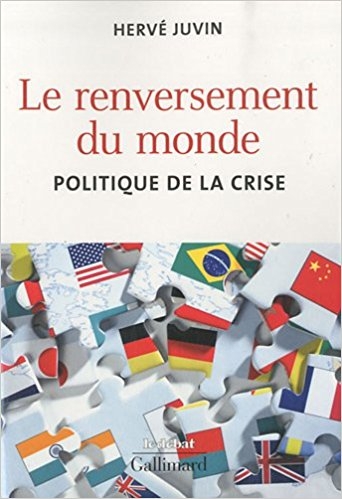 Les biens communs, ou les communs, ne cadrent pas bien avec le libre-échange, la libre circulation des capitaux, les privatisations de masse et l’hypothèse de base que tout est à vendre ; la terre, l’eau douce, l’air et les êtres humains. En fait, le libre-échange et les marchés mondiaux sont les pires ennemis des communs. La grande ouverture des dernières communautés vivant sur elles-mêmes est une condamnation à mort. Bienvenue à la réinvention de l’esclavage par ces apôtres des migrations de masse et des frontières ouvertes ! Je n’ai aucun doute à ce sujet ; une grande partie de ce que nous appelons « développement » et « aide internationale » sera bientôt considérée comme un crime contre l’humanité – l’effondrement des biens communs pour le bénéfice des entreprises mondialisées et des intérêts privés. Et le mouvement des « no borders » sera également considéré comme une manière subtile d’utiliser le travail forcé et embaucher des esclaves avec un double avantage : premièrement, faire le bien avec le sentiment d’être d’une qualité morale supérieure, deuxièmement, faire du bien à la rentabilité du capital.
Les biens communs, ou les communs, ne cadrent pas bien avec le libre-échange, la libre circulation des capitaux, les privatisations de masse et l’hypothèse de base que tout est à vendre ; la terre, l’eau douce, l’air et les êtres humains. En fait, le libre-échange et les marchés mondiaux sont les pires ennemis des communs. La grande ouverture des dernières communautés vivant sur elles-mêmes est une condamnation à mort. Bienvenue à la réinvention de l’esclavage par ces apôtres des migrations de masse et des frontières ouvertes ! Je n’ai aucun doute à ce sujet ; une grande partie de ce que nous appelons « développement » et « aide internationale » sera bientôt considérée comme un crime contre l’humanité – l’effondrement des biens communs pour le bénéfice des entreprises mondialisées et des intérêts privés. Et le mouvement des « no borders » sera également considéré comme une manière subtile d’utiliser le travail forcé et embaucher des esclaves avec un double avantage : premièrement, faire le bien avec le sentiment d’être d’une qualité morale supérieure, deuxièmement, faire du bien à la rentabilité du capital.
La société globale basée sur l’économie comme notre nature humaine, détruit les communs à un rythme incroyable. Non seulement parce qu’elle détruit les frontières qui les protégeaient ; parce que cela place le libre-échange au-dessus des communautés, des religions et des choses sacrées. Et le modèle du marché global où tout est à vendre substitue effectivement l’expulsion des communs générant pauvreté pour une partie croissante de la population mondiale. L’accès libre à la nature sera bientôt refusé à la majorité des gens ; des légumes ou de la viande qu’ils mangent, au jeu qu’ils jouent ou aux loisirs qu’ils partagent, des graines sur lesquelles ils comptent, sur les enfants qu’ils veulent. Tout sera calibré, tout passera sous la coupe de la loi de la meilleure rentabilité pour le capital – et à la fin du processus, la vie humaine elle-même finira par être un produit de l’industrie.
Les communautés indigènes, des tribus d’Amérique du Sud aux associations environnementales en France ou en Allemagne, sont aussi les seules à vouloir protéger leurs communs, et se battent parfois avec ferveur pour les sauver contre des projets industriels ou des investissements massifs. Elles devront lutter contre ces soi-disant « accords commerciaux » dont le seul but est de protéger, non pas l’investissement lui-même, mais le retour attendu des bénéfices ! Toute analyse approfondie du conflit entre les compagnies minières aurifères équatoriennes et canadiennes, ou entre le Guatemala et la Bolivie et les entreprises industrielles américaines, révèle cette situation confuse ; l’explosion actuelle du capital, mieux connue sous le nom de « quantitative easing », crée une pression croissante sur les ressources naturelles. Le système monétaire émet des chèques en nombres illimités, et c’est à la nature de payer la facture ! C’est pourquoi la prochaine étape est l’accaparement final de la nature pour le bénéfice du système de la dette ; pas un morceau de terre, ou une gorgée d’eau, pas un poisson dans l’océan profond ou un arbre dans la forêt tropicale ne va échapper à l’industrie – leur destruction pour de l’argent.
Le retour des communs est l’une des conditions principales et uniques de notre survie.
Qu’est-ce que ça veut dire ? La plupart d’entre nous en Europe sont des autochtones. Nous savons d’où nous venons, et nous savons à quoi nous appartenons. Ce qui nous importe le plus, c’est de dire « nous » avec confiance, avec foi, avec amitié. Les communs sont l’endroit où tout le monde dit « nous ». C’est l’endroit où il n’y a pas de place pour le « moi ». Et les bases sont solides pour le futur proche. Ce sont les ressources qui ne sont pas à vendre, les ressources partagées par la communauté, pas pour le commerce ou l’industrie à tout prix, des ressources hors de portée des commerçants ou des banquiers. Pas de libre-échange, pas de marché, pas de pouvoir de prix sur les communs. Les graines, le sol, l’eau douce, l’air, la naissance humaine et les vies humaines ne sont pas non plus à vendre. Elles ne sont pas le moyen de maximiser le rendement du capital ! La nature elle-même prendra soin de nos biens communs, et nous donnera beaucoup plus que n’importe quel fonds d’investissement, seulement si nous la respectons, seulement si nous la laissons jouer, seulement si nous la laissons faire. C’est la plus grande leçon de l’écologie, de l’agroforesterie et de l’agriculture biotech. Nous avons juste à appartenir. Nous avons juste à partager une identité ; il suffit d’accepter des limites. Voici la venue de la politique identitaire. Voici la disparition de l’économie telle que nous la connaissons. Toutes ces questions sont profondément politiques, et elles appellent à un retour au pouvoir de toute la communauté politique dans son ensemble – pas la disparition de la communauté pour mon bénéfice, moi l’individu souverain !
 Quelle est la prochaine étape ?
Quelle est la prochaine étape ?
Nous sommes à la fin de l’économie libérale telle que nous la connaissons et, à ce moment-là, nous serrons à la fin de la cupidité individuelle en tant qu’outil puissant de l’ordre politique. Qu’est-ce qui va arriver ? Et que devons-nous faire ?
Après l’effondrement de l’économie en tant que foi, et l’effondrement du marché mondial en tant que sorcellerie, le premier besoin est spirituel. Je ne dis pas religieux. Mais nous devons reconnaître la dimension sacrée de la vie, de toutes les formes de vie. Nous devons partager les symboles de notre destin commun et de notre volonté collective, et nous avons besoin d’une renaissance de la communauté comme étant bien plus que la somme des individus – la magie du « Nous, les gens » est encore à réinventer. Cela pourrait être le cadeau le plus utile de l’Union Européenne au monde extérieur ; vous ne pouvez pas construire une communauté politique sur le marché, l’argent, la croissance ou les droits individuels. Nous avons besoin de plus que cela, de quelque chose de différent, quelque chose proche de la foi, des symboles et de la fraternité, quelque chose comme cette chose sacrée que nous perdons, et qu’ils nous prennent.
La condition même de la réévaluation des biens communs est la reconnaissance générale que tout n’est pas à vendre, parce qu’il y a des choses à vendre, il y a des choses à transmettre, et il y a des choses à donner ou à partager. Et il y a des choses sacrées dans lesquelles la communauté met sa confiance et par lesquelles elle exprime sa différence. Bien sûr, ces choses sont sacrées. Bien sûr, ces choses n’ont pas de substitut sous forme monétaire. Elles ne sont ni négociables ni vendables. C’est la définition même de la sacralité, et nous partageons un besoin urgent de redéfinir ce qui dans la nature, dans nos pays, sociétés et chez nous, n’est pas à vendre, parce que c’est la partie principale de notre être humain.
Ce n’est pas le moment d’élaborer des propositions pour résoudre nos problèmes. Je vais juste souligner trois choses principales à faire, et à faire maintenant.
Nous devons élaborer un nouveau système de comptabilité. Le système actuel compte comme une valeur ajoutée la destruction des espèces et des ressources rares. C’est une menace contre notre survie. Le seul système durable tiendra compte du respect de la loi par les entreprises, des contraintes fiscales et sociales et du respect des cultures et modes de vie locaux par les entreprises privées et les organismes étrangers.
Nous devons prendre en compte la fin de l’économie du carbone, le retour de la géographie et le besoin de localisme et d’activités auto-orientées. Ce n’est pas un problème mineur ; ce pourrait être la fin de la démocratie telle que nous la connaissons, basée sur un approvisionnement énergétique illimité pour le commerce et les communications. Le coût du transport presque nul est le plus grand mensonge du système économique actuel, l’appel efficace à la globalisation. La distance aura de l’importance, la géographie aura de l’importance et son coût reste encore à intégrer.
Beaucoup plus important, nous devons travailler autour du droit à la diversité, la condition la plus importante de notre survie. C’est peut-être le plus grand apprentissage de l’écologie et de la biologie ; la diversité est collective, et cette diversité est la clé de la survie.
Nous ne survivrons pas à l’alignement de la planète sur la cupidité illimitée pour les ressources. Personne ne réclame la démocratie mondiale, l’uniformisation du monde par l’économie dite libérale. Personne ne sait plus qui sont Milton Friedman ou Friedrich von Hayek – ce ne sont que des personnages de musées. Mais personne ne pense plus que le problème concernera le socialisme, ou l’économie contrôlée par l’État, ou quelque chose entre les deux. La vraie reconnaissance de la liberté humaine comme liberté collective et de la diversité culturelle et politique comme trésor de l’humanité, don de la nature et condition même de notre survie, droit fondamental au-dessus de tout autre droit économique ou individuel politique, est la clé d’un avenir de paix, de compréhension mutuelle et de coexistence respectueuse.
À Chisinau, ce 17 décembre 2017, je lance un appel collectif pour renouveler l’accord conclu lors de la Conférence de La Havane, en 1948-1949, lorsque les Nations Unies ont prévu de subordonner le libre-échange et les marchés libres au bien-être, au progrès social et à la sécurité environnementale des populations.
J’appelle à un engagement collectif pour reconstruire un forum des pays non alignés, le même qui a eu lieu à Bandung, en 1955, un forum de ceux qui ne veulent pas être relocalisés, être déportés ou être privés de leur identité par des intérêts étrangers, un forum de personnes qui partagent profondément le sentiment que le trésor le plus important de l’humanité est au-delà de tout ce qui se vend, le trésor de la diversité culturelle et de la générosité de la nature.
Et j’appelle à renouveler la Déclaration de Coyococ, en 1974, sur les droits collectifs des peuples autochtones, contre les colons et les envahisseurs, les droits à la sécurité collective sociale, culturelle et environnementale. Ce sont les véritables fondements des droits de l’homme ; les droits individuels ne servent à rien s’il n’y a pas de société organisée pour les prendre pour acquis.
Il y a plusieurs siècles, le Chapitre des Forêts donnait un sens précis et efficace aux droits de l’homme ; le droit de vivre selon la nature et de vivre de la richesse des ressources naturelles et des écosystèmes vivants. L’échec d’une approche juridique des droits de l’homme est avéré ; plus il y en a, moins ils prouvent une quelconque efficacité. Beaucoup de mots, et si peu de réalité !
Le chemin était ouvert il y a longtemps. Il est temps maintenant de compléter et de garantir les droits humains par une déclaration des droits collectifs – id est, les droits des sociétés humaines à ne pas être détruites par l’extérieur, le droit à leur sécurité morale, religieuse, politique et environnementale, le droit de tous peuples autochtones de se protéger ou d’être protégés contre les colons et les envahisseurs, à tout prix et par quelque moyen que ce soit. C’est la vraie condition de notre survie. Nous ne survivrons pas à travers ce siècle sans la générosité de la nature, la beauté des cultures et la liberté naturelle de l’esprit humain.
 Hervé Juvin
Hervé Juvin
Écrivain, Essayiste, Économiste
Président, NATPOL DRS (DRS comme diversité, résilience et sécurité)
Conférence sur le Cercle Aristote
Traduit par Hervé relu par Catherine pour le Saker Francophone
Note:
 The nineteenth-century French historian Fustel de Coulanges memorably showed, in his La Cité antique, the fundamental role which the religion had in shaping the laws, families, and very statehood of Greek and Roman societies. The ancient family and state were presided over by fathers also playing the role of priests. Participation in the religion defined who was a member of the community, whether familial or political, what were the inviolable sacred spaces were (the household, the city, the federal sanctuary), what were the duties of each, and who were the ancestors and gods one had to live up to. The religious-familial-political community – all the associated sentiments reinforcing one another in wondrous harmony – and its rules were constantly reinforced by regular and mandatory ritualistic activity featuring sacrifices, a set calendar, festivals, and so on. Coulanges says:
The nineteenth-century French historian Fustel de Coulanges memorably showed, in his La Cité antique, the fundamental role which the religion had in shaping the laws, families, and very statehood of Greek and Roman societies. The ancient family and state were presided over by fathers also playing the role of priests. Participation in the religion defined who was a member of the community, whether familial or political, what were the inviolable sacred spaces were (the household, the city, the federal sanctuary), what were the duties of each, and who were the ancestors and gods one had to live up to. The religious-familial-political community – all the associated sentiments reinforcing one another in wondrous harmony – and its rules were constantly reinforced by regular and mandatory ritualistic activity featuring sacrifices, a set calendar, festivals, and so on. Coulanges says: We are shocked to see, throughout Greco-Roman history, government and even military business being significantly affected by apparently trivial “omens” such as the weather, the entrails of animals, the flight of birds, dreams, sneezes, the inscrutable sayings of the oracles, to not speak of more significant events such as earthquakes and eclipses. All these were interpreted not as chance occurrences but as manifestations of divine will.
We are shocked to see, throughout Greco-Roman history, government and even military business being significantly affected by apparently trivial “omens” such as the weather, the entrails of animals, the flight of birds, dreams, sneezes, the inscrutable sayings of the oracles, to not speak of more significant events such as earthquakes and eclipses. All these were interpreted not as chance occurrences but as manifestations of divine will.






 del.icio.us
del.icio.us
 Digg
Digg
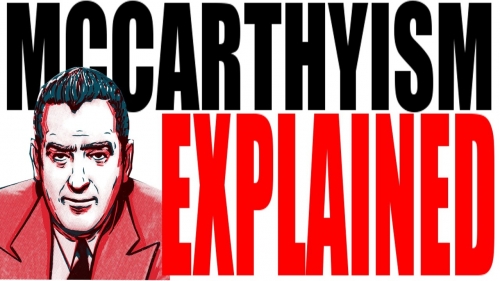

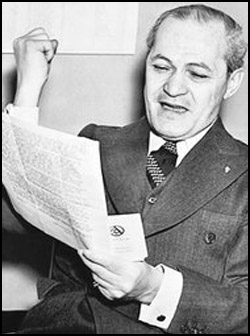 » La HUAC avait été mise en place à la Chambre des Représentants en 1934
» La HUAC avait été mise en place à la Chambre des Représentants en 1934  » Ce n'était que la plus visible des mesures répressives qui furent prises lors de la “Brown Scare” et qui furent ensuite réutilisées lors de la “Red Scare”. Il s’agissait d’un simple ajustement suivant le tournant de la politique étrangère américaine et un changement ultérieur de l'opinion publique américaine. Le FBI avait infiltré des groupes comme le Comité America First qui s'opposait à l'entrée des Etats-Unis dans la Seconde Guerre mondiale, il avait mis sur écoutes des dirigeants conservateurs tel que le directeur du Chicago Tribune Robert McCormick ; il suffisait alors de réorienter toutes ces procédures vers les cibles de gauche. Mais rappelez-vous l’essentiel : c’est la gauche qui lança tout cela et fit mettre en place la répression dans toute son ampleur, alors qu’elle tenait le fouet.
» Ce n'était que la plus visible des mesures répressives qui furent prises lors de la “Brown Scare” et qui furent ensuite réutilisées lors de la “Red Scare”. Il s’agissait d’un simple ajustement suivant le tournant de la politique étrangère américaine et un changement ultérieur de l'opinion publique américaine. Le FBI avait infiltré des groupes comme le Comité America First qui s'opposait à l'entrée des Etats-Unis dans la Seconde Guerre mondiale, il avait mis sur écoutes des dirigeants conservateurs tel que le directeur du Chicago Tribune Robert McCormick ; il suffisait alors de réorienter toutes ces procédures vers les cibles de gauche. Mais rappelez-vous l’essentiel : c’est la gauche qui lança tout cela et fit mettre en place la répression dans toute son ampleur, alors qu’elle tenait le fouet. (D’un autre côté, Roosevelt, qui était d’abord un politicien roué assez éloigné de l’image idéalisée qu’on en fit et qui persiste, s’opposait aux tentatives légales d’avancement trop affirmé de la gauche radicale, comme par exemple lorsqu’il sabota indirectement la campagne de l’écrivain
(D’un autre côté, Roosevelt, qui était d’abord un politicien roué assez éloigné de l’image idéalisée qu’on en fit et qui persiste, s’opposait aux tentatives légales d’avancement trop affirmé de la gauche radicale, comme par exemple lorsqu’il sabota indirectement la campagne de l’écrivain 
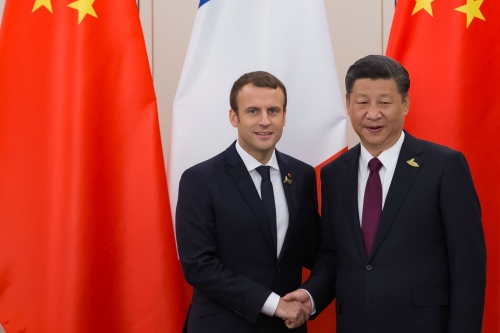





 Ma réponse sera : le monde conduit par l’économie est le vieux monde. Nous ne regardons pas seulement l’échec misérable des institutions de
Ma réponse sera : le monde conduit par l’économie est le vieux monde. Nous ne regardons pas seulement l’échec misérable des institutions de  Laissez-moi dire quelques mots sur chaque question.
Laissez-moi dire quelques mots sur chaque question. La deuxième hypothèse est que toute société humaine dans le monde entier est à la recherche de développement. C’est aussi un mensonge. En fait, la plupart des communautés indigènes et des confessions religieuses sont organisées contre le développement ; elles n’ont pas de place pour une telle chose dans leur communauté. Près de chez moi, sur la côte ouest de Madagascar, ils brûlent la maison de quiconque devient riche, pour le garder dans la communauté. Ils comprennent très bien que l’argent est le grand fossé entre les êtres humains, et l’économie de marché, la fin des communs. Le fait n’est pas qu’ils sont incapables de se développer eux-mêmes ; la vérité est que, en tant que communauté, ils refusent l’individualisme lié au développement économique. Ils préfèrent leur communauté au droit illimité de rompre avec elle et avec la nature elle-même. La phrase qu’ils préfèrent est « Mieux vaux une touche de fihavanana (le bien-être collectif) qu’une tonne d’or ». Pour le bien de la croissance, ce que nous appelons le développement, c’est la rupture de ces communautés contre leur volonté et la fin de leur bien-être collectif pour les fausses promesses d’un accomplissement individuel. Sous le faux drapeau de la liberté, pour le commerce et l’argent, les Occidentaux l’ont fait à plusieurs reprises, de la rupture du Japon par le
La deuxième hypothèse est que toute société humaine dans le monde entier est à la recherche de développement. C’est aussi un mensonge. En fait, la plupart des communautés indigènes et des confessions religieuses sont organisées contre le développement ; elles n’ont pas de place pour une telle chose dans leur communauté. Près de chez moi, sur la côte ouest de Madagascar, ils brûlent la maison de quiconque devient riche, pour le garder dans la communauté. Ils comprennent très bien que l’argent est le grand fossé entre les êtres humains, et l’économie de marché, la fin des communs. Le fait n’est pas qu’ils sont incapables de se développer eux-mêmes ; la vérité est que, en tant que communauté, ils refusent l’individualisme lié au développement économique. Ils préfèrent leur communauté au droit illimité de rompre avec elle et avec la nature elle-même. La phrase qu’ils préfèrent est « Mieux vaux une touche de fihavanana (le bien-être collectif) qu’une tonne d’or ». Pour le bien de la croissance, ce que nous appelons le développement, c’est la rupture de ces communautés contre leur volonté et la fin de leur bien-être collectif pour les fausses promesses d’un accomplissement individuel. Sous le faux drapeau de la liberté, pour le commerce et l’argent, les Occidentaux l’ont fait à plusieurs reprises, de la rupture du Japon par le  En disant cela, nous sommes proches du grand secret caché derrière la scène ; nous sommes confrontés à la fin des systèmes libéraux tels que nous les connaissions.
En disant cela, nous sommes proches du grand secret caché derrière la scène ; nous sommes confrontés à la fin des systèmes libéraux tels que nous les connaissions. Les biens communs, ou les communs, ne cadrent pas bien avec le libre-échange, la libre circulation des capitaux, les privatisations de masse et l’hypothèse de base que tout est à vendre ; la terre, l’eau douce, l’air et les êtres humains. En fait, le libre-échange et les marchés mondiaux sont les pires ennemis des communs. La grande ouverture des dernières communautés vivant sur elles-mêmes est une condamnation à mort. Bienvenue à la réinvention de l’esclavage par ces apôtres des migrations de masse et des frontières ouvertes ! Je n’ai aucun doute à ce sujet ; une grande partie de ce que nous appelons « développement » et « aide internationale » sera bientôt considérée comme un crime contre l’humanité – l’effondrement des biens communs pour le bénéfice des entreprises mondialisées et des intérêts privés. Et le mouvement des « no borders » sera également considéré comme une manière subtile d’utiliser le travail forcé et embaucher des esclaves avec un double avantage : premièrement, faire le bien avec le sentiment d’être d’une qualité morale supérieure, deuxièmement, faire du bien à la
Les biens communs, ou les communs, ne cadrent pas bien avec le libre-échange, la libre circulation des capitaux, les privatisations de masse et l’hypothèse de base que tout est à vendre ; la terre, l’eau douce, l’air et les êtres humains. En fait, le libre-échange et les marchés mondiaux sont les pires ennemis des communs. La grande ouverture des dernières communautés vivant sur elles-mêmes est une condamnation à mort. Bienvenue à la réinvention de l’esclavage par ces apôtres des migrations de masse et des frontières ouvertes ! Je n’ai aucun doute à ce sujet ; une grande partie de ce que nous appelons « développement » et « aide internationale » sera bientôt considérée comme un crime contre l’humanité – l’effondrement des biens communs pour le bénéfice des entreprises mondialisées et des intérêts privés. Et le mouvement des « no borders » sera également considéré comme une manière subtile d’utiliser le travail forcé et embaucher des esclaves avec un double avantage : premièrement, faire le bien avec le sentiment d’être d’une qualité morale supérieure, deuxièmement, faire du bien à la 







 Rarely will anyone form their own thought or choose different than what they are told. In fact, if you do not make decisions and intentions, someone else will do it for you. You know this from your own life: If your spouse asks you where you want to go for dinner and you don’t really have any specific preference, then they will decide where to go. The same applies on a mass-scale.
Rarely will anyone form their own thought or choose different than what they are told. In fact, if you do not make decisions and intentions, someone else will do it for you. You know this from your own life: If your spouse asks you where you want to go for dinner and you don’t really have any specific preference, then they will decide where to go. The same applies on a mass-scale. A recent movie The Nightcrawler (starring Jake Gyllenhaal) exposes the juvenile and sadistic mindset of some sections of modern “journalism.” No doubt, the last decade has seen a rise in terrorist attacks all over the world. And while these are horrific, they are still actually just localised events, pinpointed at certain buildings with a limited amount of people. They are not nearly as bad as the nation-to-nation all-out-wars we’ve had in decades before that.
A recent movie The Nightcrawler (starring Jake Gyllenhaal) exposes the juvenile and sadistic mindset of some sections of modern “journalism.” No doubt, the last decade has seen a rise in terrorist attacks all over the world. And while these are horrific, they are still actually just localised events, pinpointed at certain buildings with a limited amount of people. They are not nearly as bad as the nation-to-nation all-out-wars we’ve had in decades before that.




 « Ce monde est dérisoire, mais il a mis fin à la possibilité de dire à quel point il est dérisoire ; du moins s’y efforce-t-il, et de bons apôtres se demandent aujourd’hui si l’humour n’a pas tout simplement fait son temps, si on a encore besoin de lui, etc. Ce qui n’est d’ailleurs pas si bête, car le rire, le rire en tant qu’art, n’a en Europe que quelques siècles d’existence derrière lui (il commence avec Rabelais), et il est fort possible que le conformisme tout à fait neuf mais d’une puissance inégalée qui lui mène la guerre (tout en semblant le favoriser sous les diverses formes bidons du fun, du déjanté, etc.) ait en fin de compte raison de lui. En attendant, mon objet étant les civilisations occidentales, et particulièrement la française, qui me semble exemplaire par son marasme extrême, par les contradictions qui l’écrasent, et en même temps par cette bonne volonté qu’elle manifeste, cette bonne volonté typiquement et globalement provinciale de s’enfoncer encore plus vite et plus irrémédiablement que les autres dans le suicide moderne, je crois que le rire peut lui apporter un éclairage fracassant. »
« Ce monde est dérisoire, mais il a mis fin à la possibilité de dire à quel point il est dérisoire ; du moins s’y efforce-t-il, et de bons apôtres se demandent aujourd’hui si l’humour n’a pas tout simplement fait son temps, si on a encore besoin de lui, etc. Ce qui n’est d’ailleurs pas si bête, car le rire, le rire en tant qu’art, n’a en Europe que quelques siècles d’existence derrière lui (il commence avec Rabelais), et il est fort possible que le conformisme tout à fait neuf mais d’une puissance inégalée qui lui mène la guerre (tout en semblant le favoriser sous les diverses formes bidons du fun, du déjanté, etc.) ait en fin de compte raison de lui. En attendant, mon objet étant les civilisations occidentales, et particulièrement la française, qui me semble exemplaire par son marasme extrême, par les contradictions qui l’écrasent, et en même temps par cette bonne volonté qu’elle manifeste, cette bonne volonté typiquement et globalement provinciale de s’enfoncer encore plus vite et plus irrémédiablement que les autres dans le suicide moderne, je crois que le rire peut lui apporter un éclairage fracassant. » « Festivus festivus, qui vient après Homo festivus comme Sapiens sapiens succède à Homo sapiens, est l’individu qui festive qu’il festive : c’est le moderne de la nouvelle génération, dont la métamorphose est presque totalement achevée, qui a presque tout oublié du passé (de toute façon criminel à ses yeux) de l’humanité, qui est déjà pour ainsi dire génétiquement modifié sans même besoin de faire appel à des bricolages techniques comme on nous en promet, qui est tellement poli, épuré jusqu’à l’os, qu’il en est translucide, déjà clone de lui-même sans avoir besoin de clonage, nettoyé sous toutes les coutures, débarrassé de toute extériorité comme de toute transcendance, jumeau de lui-même jusque dans son nom. »
« Festivus festivus, qui vient après Homo festivus comme Sapiens sapiens succède à Homo sapiens, est l’individu qui festive qu’il festive : c’est le moderne de la nouvelle génération, dont la métamorphose est presque totalement achevée, qui a presque tout oublié du passé (de toute façon criminel à ses yeux) de l’humanité, qui est déjà pour ainsi dire génétiquement modifié sans même besoin de faire appel à des bricolages techniques comme on nous en promet, qui est tellement poli, épuré jusqu’à l’os, qu’il en est translucide, déjà clone de lui-même sans avoir besoin de clonage, nettoyé sous toutes les coutures, débarrassé de toute extériorité comme de toute transcendance, jumeau de lui-même jusque dans son nom. » « Dans le nouveau monde, on ne retrouve plus trace du Mal qu’à travers l’interminable procès qui lui est intenté, à la fois en tant que Mal historique (le passé est un chapelet de crimes qu’il convient de ré-instruire sans cesse pour se faire mousser sans risque) et en tant que Mal actuel postiche. »
« Dans le nouveau monde, on ne retrouve plus trace du Mal qu’à travers l’interminable procès qui lui est intenté, à la fois en tant que Mal historique (le passé est un chapelet de crimes qu’il convient de ré-instruire sans cesse pour se faire mousser sans risque) et en tant que Mal actuel postiche. » « …pour en revenir à cette solitude sexuelle d’Homo festivus, qui contient tous les autres traits que vous énumérez, elle ne peut être comprise que comme l’aboutissement de la prétendue libération sexuelle d’il y a trente ans, laquelle n’a servi qu’à faire monter en puissance le pouvoir féminin et à révéler ce que personne au fond n’ignorait (notamment grâce aux romans du passé), à savoir que les femmes ne voulaient pas du sexuel, n’en avaient jamais voulu, mais qu’elles en voulaient dès lors que le sexuel devenait objet d’exhibition, donc de social, donc d’anti-sexuel. »
« …pour en revenir à cette solitude sexuelle d’Homo festivus, qui contient tous les autres traits que vous énumérez, elle ne peut être comprise que comme l’aboutissement de la prétendue libération sexuelle d’il y a trente ans, laquelle n’a servi qu’à faire monter en puissance le pouvoir féminin et à révéler ce que personne au fond n’ignorait (notamment grâce aux romans du passé), à savoir que les femmes ne voulaient pas du sexuel, n’en avaient jamais voulu, mais qu’elles en voulaient dès lors que le sexuel devenait objet d’exhibition, donc de social, donc d’anti-sexuel. »
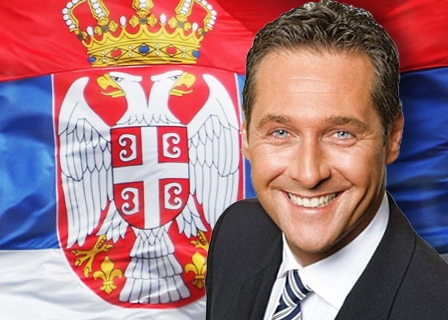


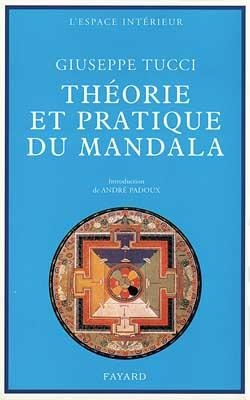 Era il 5 giugno del 1894 quando un bimbo dagli occhi curiosi e le mani sempre pronte ad afferrare ciò che incontrava sul suo cammino nasceva in un confortevole appartamento di Macerata. Oggi la targa che ricorda la sua persona si trova in corso Cavour ed è facilmente visibile, tuttavia sono in molti ad avere ricordi di un adolescente di via Crispi originale, poco avvezzo a far amicizia, sempre immerso in letture e passeggiate tra le rovine storiche, che aveva attirato l'attenzione su di sé poiché spesso, durante il freddo inverno dell'entroterra marchigiano, usciva in balcone a dorso nudo e si cimentava in difficilissimi esercizi di yoga. Nessuno poteva immaginare che la città di Macerata sarebbe arrivata in un futuro non troppo lontano a dedicargli persino una via e una sede didattica a
Era il 5 giugno del 1894 quando un bimbo dagli occhi curiosi e le mani sempre pronte ad afferrare ciò che incontrava sul suo cammino nasceva in un confortevole appartamento di Macerata. Oggi la targa che ricorda la sua persona si trova in corso Cavour ed è facilmente visibile, tuttavia sono in molti ad avere ricordi di un adolescente di via Crispi originale, poco avvezzo a far amicizia, sempre immerso in letture e passeggiate tra le rovine storiche, che aveva attirato l'attenzione su di sé poiché spesso, durante il freddo inverno dell'entroterra marchigiano, usciva in balcone a dorso nudo e si cimentava in difficilissimi esercizi di yoga. Nessuno poteva immaginare che la città di Macerata sarebbe arrivata in un futuro non troppo lontano a dedicargli persino una via e una sede didattica a 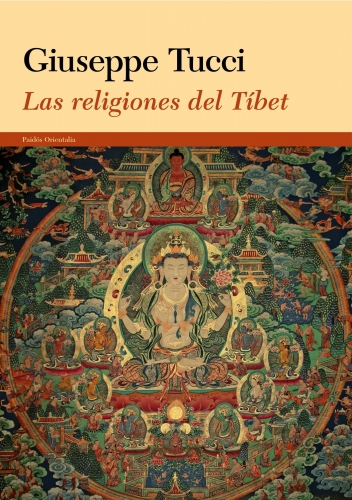 Giuseppe strinse la cinghia che teneva incollati tra loro gli antichi libri e sorrise compiaciuto. Era giunto il momento di lasciare Lhasa dopo che, non molto tempo prima, era davvero riuscito a farsi ammettere – unico uomo di tutta la spedizione – sfruttando una motivazione assai semplice: era buddista. Lo era diventato, in effetti, durante la precedente visita al Tibet nel 1935 grazie all'iniziazione dell'abate di Sakya Ngawang Thutob Wangdrag. Lo raccontò lui stesso nel libro Santi e briganti nel Tibet ignoto, esplicitando anche la convinzione di essere stato un tibetano e di essersi reincarnato nei panni di un esploratore per dare voce e lustro alla cultura di un popolo in continuo pericolo, ancora troppo ignoto al resto dell'umanità. Ed era proprio per questo motivo che Tucci, in quella soleggiata giornata dall'aria frizzantina proveniente dalle vette che si estendevano intorno a lui in lontananza, non aveva nessuna intenzione di restituire l'opera costituita da ben 108 volumi preziosi e di inestimabile valore che il Dalai Lama
Giuseppe strinse la cinghia che teneva incollati tra loro gli antichi libri e sorrise compiaciuto. Era giunto il momento di lasciare Lhasa dopo che, non molto tempo prima, era davvero riuscito a farsi ammettere – unico uomo di tutta la spedizione – sfruttando una motivazione assai semplice: era buddista. Lo era diventato, in effetti, durante la precedente visita al Tibet nel 1935 grazie all'iniziazione dell'abate di Sakya Ngawang Thutob Wangdrag. Lo raccontò lui stesso nel libro Santi e briganti nel Tibet ignoto, esplicitando anche la convinzione di essere stato un tibetano e di essersi reincarnato nei panni di un esploratore per dare voce e lustro alla cultura di un popolo in continuo pericolo, ancora troppo ignoto al resto dell'umanità. Ed era proprio per questo motivo che Tucci, in quella soleggiata giornata dall'aria frizzantina proveniente dalle vette che si estendevano intorno a lui in lontananza, non aveva nessuna intenzione di restituire l'opera costituita da ben 108 volumi preziosi e di inestimabile valore che il Dalai Lama 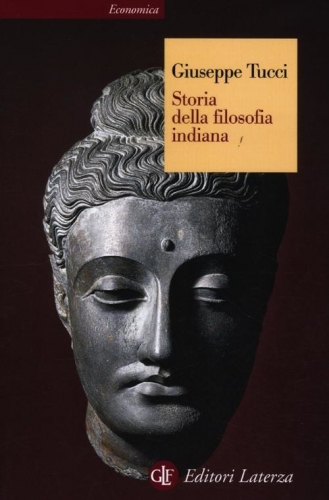 Sebbene Giuseppe Tucci sia oggi considerato unanimamente il più importante tibetologo del mondo e un esploratore, orientalista, professore e storico delle religioni di livello internazionale – contando le numerose università straniere e italiane in cui insegnò, o le prestigiose onorificenze ricevute – la sua figura resta tuttora avvolta nel mistero e nella discrezione. Acclamato nonché profondamente stimato all'estero, Tucci seppe sfruttare anche nel suo paese i legami politici e istituzionali che la sua immensa cultura gli aveva procurato; tuttavia, mai si piegò ai lustri del successo, ai salotti letterari e alla sete di visibilità, restando così un personaggio ben poco noto se si pensa all'estremo carisma che seppe emanare in vita, ma soprattutto alle incredibili missioni che svolse, degne di un'incomparabile genialità.
Sebbene Giuseppe Tucci sia oggi considerato unanimamente il più importante tibetologo del mondo e un esploratore, orientalista, professore e storico delle religioni di livello internazionale – contando le numerose università straniere e italiane in cui insegnò, o le prestigiose onorificenze ricevute – la sua figura resta tuttora avvolta nel mistero e nella discrezione. Acclamato nonché profondamente stimato all'estero, Tucci seppe sfruttare anche nel suo paese i legami politici e istituzionali che la sua immensa cultura gli aveva procurato; tuttavia, mai si piegò ai lustri del successo, ai salotti letterari e alla sete di visibilità, restando così un personaggio ben poco noto se si pensa all'estremo carisma che seppe emanare in vita, ma soprattutto alle incredibili missioni che svolse, degne di un'incomparabile genialità.

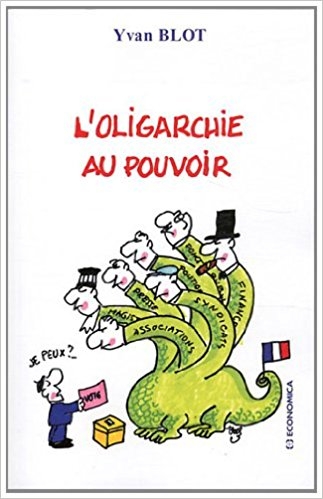 Effets
Effets


 Rien n’est moins sûr. Depuis des décennies, des politiciens de tous bords se succèdent au pouvoir sans que le pays ralentisse sa course vers le précipice. Tous n’étaient pas corrompus, apatrides ou incompétents. Marie-France Garaud, Jean-Pierre Chevènement, Philippe Séguin, Philippe de Villiers, Nicolas Dupont-Aignan, Philippe Buisson, Henri Guaino, pour n’en citer que quelques uns, ont côtoyé de très près le sommet de l’Etat. Ils ont parfois montré une certaine lucidité quant au chemin sans issue qu’empruntait le pays. Ils n’ont pourtant pas réussi à l’en détourner. En fait, on le voit avec Trump aux Etats-Unis, même un président doit situer son action politique à l’intérieur du cadre idéologique fixé par le régime en place. Car ce qui compte n’est pas la personnalité qui gouverne mais la latitude que lui laisse le système politique, à savoir, pour ce qui nous concerne, la République. Permettez-moi une comparaison :
Rien n’est moins sûr. Depuis des décennies, des politiciens de tous bords se succèdent au pouvoir sans que le pays ralentisse sa course vers le précipice. Tous n’étaient pas corrompus, apatrides ou incompétents. Marie-France Garaud, Jean-Pierre Chevènement, Philippe Séguin, Philippe de Villiers, Nicolas Dupont-Aignan, Philippe Buisson, Henri Guaino, pour n’en citer que quelques uns, ont côtoyé de très près le sommet de l’Etat. Ils ont parfois montré une certaine lucidité quant au chemin sans issue qu’empruntait le pays. Ils n’ont pourtant pas réussi à l’en détourner. En fait, on le voit avec Trump aux Etats-Unis, même un président doit situer son action politique à l’intérieur du cadre idéologique fixé par le régime en place. Car ce qui compte n’est pas la personnalité qui gouverne mais la latitude que lui laisse le système politique, à savoir, pour ce qui nous concerne, la République. Permettez-moi une comparaison :
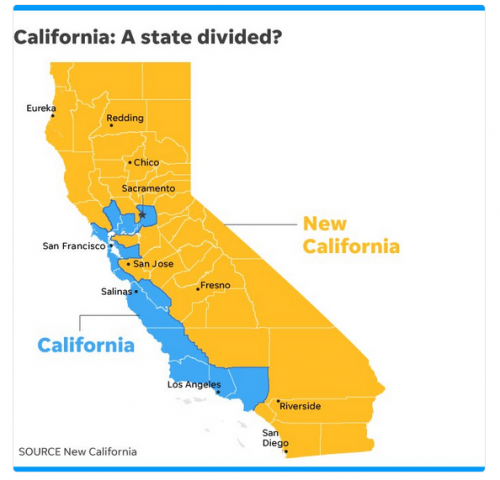




 Polémique pour une autre fois
Polémique pour une autre fois Redouter, plus largement, que les pamphlets de Céline ne corrompent la jeunesse, c’est supposer à cette dernière une capacité à lire qu’elle n’a plus. Car Céline n’est pas un écrivain facile, et nullement à la portée de ceux qui, voyous islamistes de banlieue ou petits-bourgeois connectés, ont bénéficié l’enseignement de l’ignorance qui est, selon Michéa, le propre de l’Education nationale. Un état de fait pieusement réfuté, à l’occasion du cinquantenaire de Mai 68, par un magazine officiel qui voit, dans les 50 années qui se sont écoulées, un remarquable progrès de l’enseignement public : ne sommes-nous pas arrivé à 79% de bacheliers, c’est-à-dire un progrès de 20% ? En vérité il faut, en cette matière comme en toutes les autres, inverser le discours : il ne reste plus que 20%, environ, d’élèves à peu près capables de lire et d’écrire correctement le français, et de se représenter l’histoire de France autrement que par le filtre relativiste et mondialiste du néo-historicisme.
Redouter, plus largement, que les pamphlets de Céline ne corrompent la jeunesse, c’est supposer à cette dernière une capacité à lire qu’elle n’a plus. Car Céline n’est pas un écrivain facile, et nullement à la portée de ceux qui, voyous islamistes de banlieue ou petits-bourgeois connectés, ont bénéficié l’enseignement de l’ignorance qui est, selon Michéa, le propre de l’Education nationale. Un état de fait pieusement réfuté, à l’occasion du cinquantenaire de Mai 68, par un magazine officiel qui voit, dans les 50 années qui se sont écoulées, un remarquable progrès de l’enseignement public : ne sommes-nous pas arrivé à 79% de bacheliers, c’est-à-dire un progrès de 20% ? En vérité il faut, en cette matière comme en toutes les autres, inverser le discours : il ne reste plus que 20%, environ, d’élèves à peu près capables de lire et d’écrire correctement le français, et de se représenter l’histoire de France autrement que par le filtre relativiste et mondialiste du néo-historicisme.